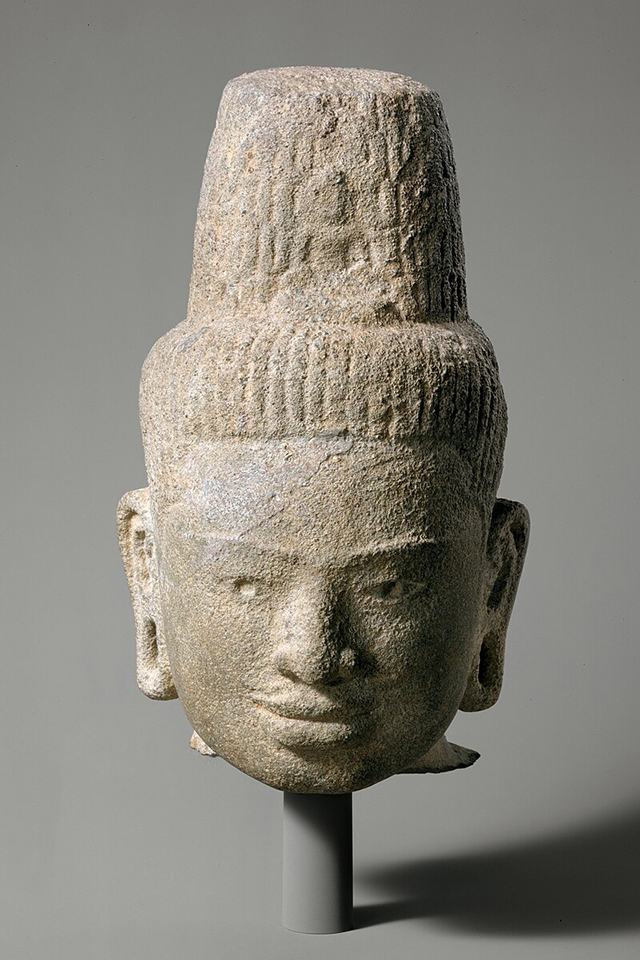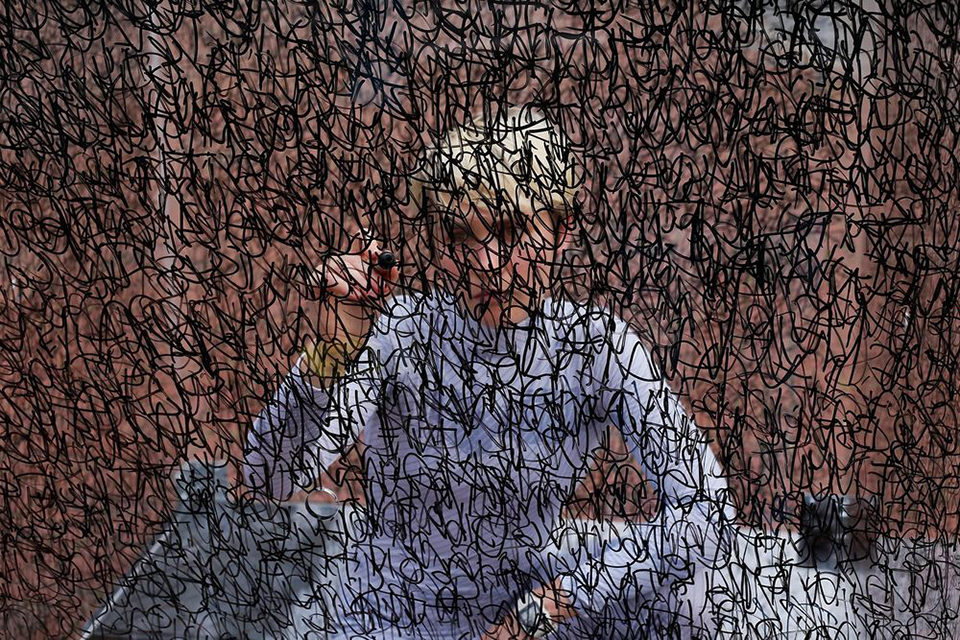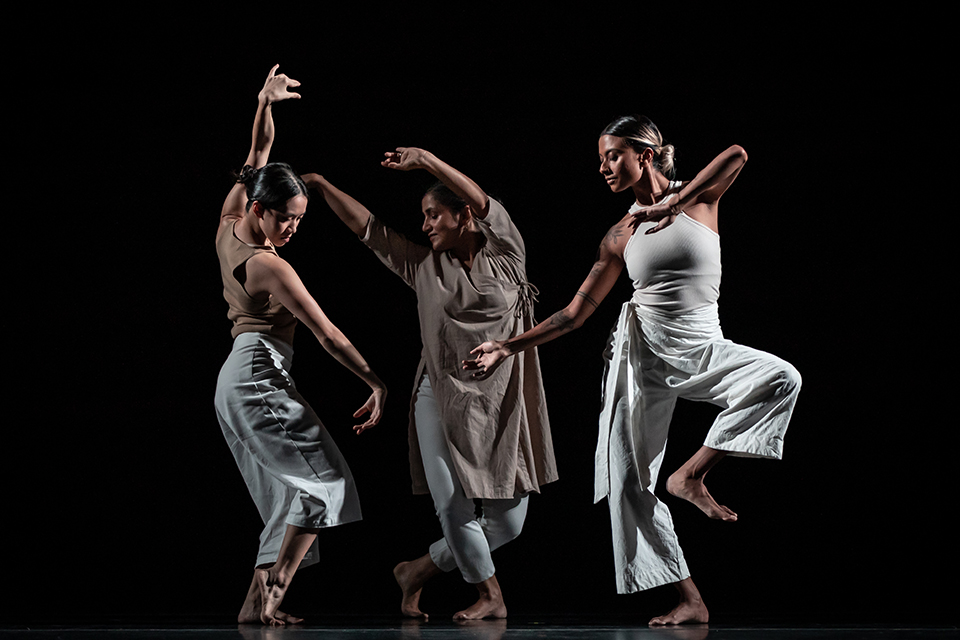The Sundiata Epic: Griots, Words, Songs and Performance

A Residency Featuring World renowned Malian musicians Wassa Kouyaté and Balla Kouyaté with Professor Cherif Keita
Class visits: October 7-8
Open class: Wednesday, October 9
Time: 6:00 pm
Slosberg Hall
The residency features Wassa Kouyaté and Balla Kouyaté, internationally renowned Malian traditional musicians. These musicians are part of a Mande jaliw (generally known as the griots) who are oral historians, musicians, and performers who keep alive and celebrate the history of the Mandé people of Mali, Guinea, Senegal, and other West African countries. They are descendents of musicians who took an oath to continue the family’s oral tradition and musical heritage which dates back to the 13th century, the time of Sunjata Keita, founder of the Mali empire. The residency will consist of class visits as well as a live performance of the Sundiata fasa (epic) of the Mande people, with an English translation by Professor and descendent of Sundiata, Cherif Keita.
Mande griots (storytellers) have been guardians of Sunjata’s life story, which has been passed down for generations through songs, spoken recitation, and musical performance. Singer and virtuoso kora player Wassa Kouyaté will be accompanied by Balla Kouyaté, a virtuoso player of the balafon (West African xylophone). “Oral tradition holds that when the emperor Sundiata overthrew Soumaora Kante, he appointed the Kouyaté family to protect the balafon. Played with mallets, the balafon is made up of wooden slats and rows of calabash gourds, which serve as natural amplifiers. The original musical instrument, known as the ‘Sosso-Bala,’ survives in Kouyaté’s father’s home village of Niagassola, on the Mali-Guinea border. In 2001, the Sosso-Bala was declared an item of intangible cultural heritage by UNESCO and is brought out once a year for ceremonial playing.” (Biography by Maggie Holtzberg, Massachusetts Cultural Council)
This event is tied to a course in the English and African and African American Studies Departments here at Brandeis, taught by Professor Emilie Diouf. Called “Decolonizing Tongues: Language in African Literature,” it combines novels and poems written in English, French, and Wolof, with African oral literatures to highlight how the study of African oral traditions alongside written texts frees our imagination and broadens our analytical scope. “As a teacher of African literature in the U.S.,” Dr. Diouf shares, “I often find myself limited by an allegiance to the written word. Consequently, we neglect a rich oral repertoire from which African writers continue to draw. This residency is important because it allows the Brandeis community to engage with the work of oral performers and be exposed to how they create, translate, and adapt their aesthetic processes to audience and performance style. Moreover, students will be introduced to how epic narrations are performed in West African settings as means to impart specific historical knowledge, including genealogies.”

Wassa Kouyaté is a daring artist who embodies the very essence of Mande griot through her music. Born in Sikasso, Mali, into a family of griots, she is a virtuoso player of the kora and the piano. Women are usually forbidden to play the kora and are often assigned the task of singing or accompanying themselves with more simple percussive instruments and shakers while the men play the main instruments (ngoni, balafon, kora, modern guitars, and wind instruments) . Her impressive collaborations include, among others, a performance with Fatoumata Diawara, and Eve Risser on the Kogoba bassigui project in France.
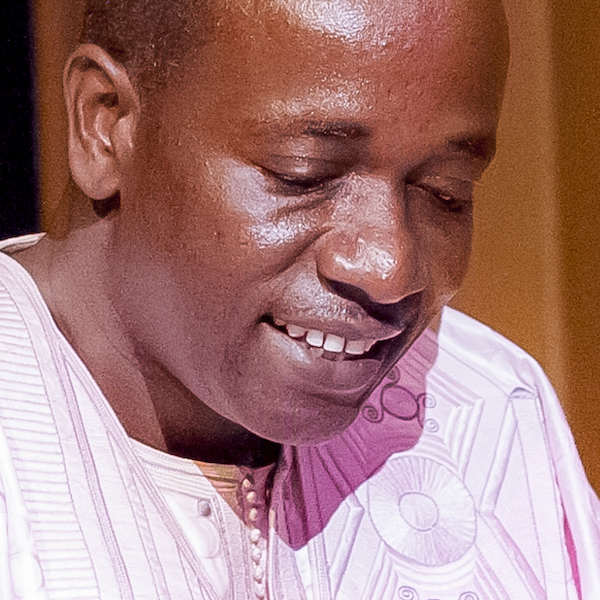
Balla Kouyaté is an internationally acclaimed balafon player and jaliw (griot). He is a faculty member of the New England conservatory. He is the 2019 National Endowment for the Arts National Heritage Fellow. Kouyaté has collaborated with ensembles and musicians including Silkroad, Yo-Yo Ma, Angélique Kidjo, and Vusi Mahlasela.
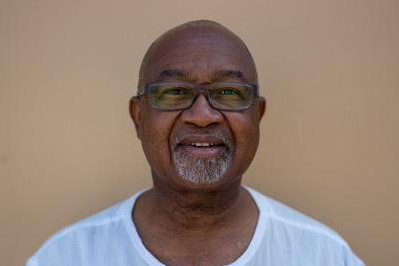
Dr. Cherif Keita, a scholar of the Sundiata epic, teaches Francophone literature of Africa and the Caribbean, as well as advanced language courses at Carleton College. A native of Mali, he has published books and articles on both social and literary problems in contemporary Africa.
